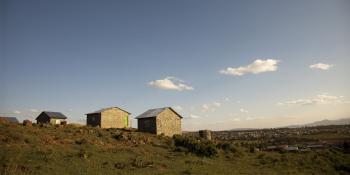
Land & homes - the keys to ending the cycle of poverty
by Tamzin Hudson, Advocacy Specialist, Habitat for Humanity EMEA.
It is well documented from the work of grass roots, civil society and non-governmental organisations that the women, in Africa, are among the poorest of the poor and their lack of access to land and housing is largely as a result of their limited access to resources. Unemployment and underemployment, particularly for women, and therefore insufficient wages to purchase housing means women have little chance to own their own home. Unfair inheritance and divorce laws also force women into situations of hardship and homelessness.
There is insufficient awareness on the part of women about their land rights and why tenure documentation is important. Freehold title is expensive, complex and requires sophisticated land administration systems that would require time to put in place.
Habitat for Humanity International recently held a conference to address issues pertaining to land tenure to highlight the competing claims to land and range of tenure systems as well as potential policy responses that would involve more flexibility and participation on the part of civil society.
The conference recognised the need to view land differently, not in purely technical terms, but to find solutions that are pro-poor, gender-responsive, accountable and sustainable in their orientation.
Tenure programmes are designed to examine the processes, policies and systems of how land is governed and managed to ensure higher and more clarified structures.
Land is essential for the provision of house and human settlements, agriculture and food security, for home based enterprises, employment and ultimately for social and economic development. Determining how land can be accessed and secured is tremendously important.
There are a range of tenure arrangements that are not all recognised or captured accurately or capable of being recognised and therefore put in a deeds registry. Secure tenure facilitates improved access to the economic potential of property in a number of different ways which include sale of property; on site income generation; and a secure urban base to access more economic opportunity available in the city.
More flexible approaches to tenure that do not necessarily have to meet the strict and highly regulated criteria of registration and all the expenses related to surveying, legal costs. This involves a far better understanding of the people to land relationships and how these can be best captured in policies and legislation.
In order to realise a solution, South Africa needs to ensure extensive community participation and comment on the Communal Land Tenure Bill, 2017.
The article first appeared at city-press.news24.com.